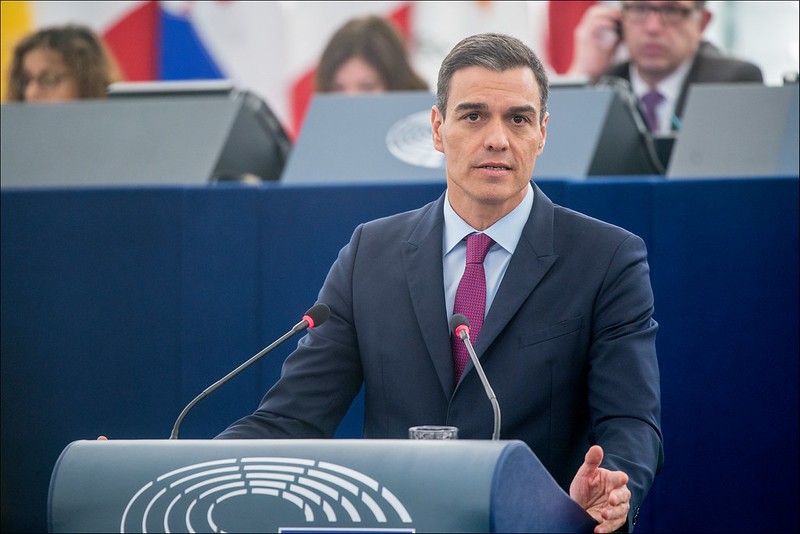Spain's lower house on Tuesday voted against an amnesty bill due to differences in it's jurisdiction between the ruling Socialists and a Catalan separatist party.

That is a crucial letdown for Prime Minister Pedro Sanchez and shows the fragility of Spain's socialist-led minority government.
The controversial bill presented by Sanchez seeks to benefit Catalan nationalists facing legal proceedings for separatist happenings in exchange for help securing the prime minister a second term. According to the BBC, this includes those involved in a failed 2017 independence bid, including the ex-president of the Catalonia region.
The law encountered its first critical test on Tuesday, reported the outlet.
Multiple nationalist parties, including Together for Catalonia (JxCat) led by former Catalan president Carles Puigdemont, were backing an amnesty, indicating a potential approval of the law by congress.
The BBC reported that it was blocked by JxCat, citing what it said was judicial interference aimed at sabotaging the law.
"We cannot participate in allowing the Catalan independence movement to be exposed to the whims of the politicized Spanish judiciary," said Miriam Nogueras, spokeswoman for JxCat.
Per The Guardian, the draft law would apply to roughly 400 people involved in the symbolic, unilateral independence referendum of November 2014. The poll that followed three years later culminated in the declaration of regional independence and ultimately shoved Spain into its worst political crisis for four decades.
Its most high-profile beneficiary would be Puigdemont. He had fled to Belgium to avoid arrest over his role in masterminding the illegal push to secede from Spain in 2017.
The bill, rejected by 179 votes to 171, will not return for debate in a parliamentary committee and could eventually be sent back for another vote in the lower house. The amnesty bill is set to define Sanchez's second term and has prompted large protests against it reported Reuters.
Catalan separatists Junts voted against the law after they failed to reach a last-minute deal with Sanchez's Spanish Socialist Workers' Party. Junts wanted all exceptions related to terrorism to be removed from the bill since some of its politicians are currently under investigation by courts over alleged terrorism-related crimes.
The bill initially came from Catalan separatist parties Esquerra Republicana de Catalunya and Junts and presented to Sanchez in hopes of mutual benefit.
Sanchez's party declared certain aspects of the terrorism-related charges cannot not be pardoned.
"Junts cannot participate in leaving all Catalan separatism exposed to the arbitrariness of the politicized Spanish judiciary," said lawmaker Miriam Nogueras. She said the current amnesty proposal was too selective and had loopholes.
According to Reuters, the amnesty would cover all events related to the Catalan independence drive from 2012, including a symbolic vote held in 2014 and an independence referendum in 2017, which courts declared illegal.
Furthermore, it's to profit several hundred separatists as well as several police officers who stormed the polling stations during the referendum.
In the past, Sanchez opposed an amnesty and is still rejecting an independence referendum, however argues that the proposed bill seeks to foster reconciliation between the parties.
The Conservative opposition continues to accuse him of undermining Spain's rule of law.
© 2026 HNGN, All rights reserved. Do not reproduce without permission.









